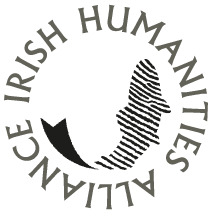We need to recognise that this crisis is as much about society and politics as it is about virology, immunology and economics
This is a re-post of a piece by Professor Carey that was first published on 'RTÉ Brainstorm' on 21 April 2020. The original piece can be accessed here: https://www.rte.ie/brainstorm/2020/0421/1132824-why-we-need-more-than-just-scientists-to-document-the-pandemic/
Remarkable efforts have been made by a host of researchers in Ireland to address the Covid-19 crisis, ranging from studies in immunology to symptom-tracking technology, development of reagents for testing, and a number of engineering solutions to address the need for ventilators and other essential equipment. The urgency and importance of this work is unquestionable, and all of us will benefit from breakthroughs and successes as research continues.
Without doubt, the immediate requirement of reducing the death toll and the demands on hospitals remain of utmost importance. But if we are to rise to the challenge presented by coronavirus, we must recognize that science and healthcare represent only one part of the equation. The rest of the story is essentially social, political and economic. In this trio of concerns, economic issues will dominate discussion as we attempt to navigate through a huge contraction of the economy, attended by massive job losses, business closures, and a remarkable strain on fiscal resources during a severe global downturn. Fortunately, institutions like the Central Bank and government departments have the resources of the ESRI to turn to and opportunities to draw on academic expertise.
The risk is that in the midst of these demands and discussions we neglect the urgent responsibility to understand the social and political conditions underpinning the unfolding crisis. Only by coming to terms with these questions can we hope to avoid future calamities on this scale. The search for a vaccine constitutes a crucial remedy, but it will not in itself identify strengths and weaknesses in how governments have responded and how societies mobilize to confront a pandemic.
To date, major funding calls in Ireland have emerged from Science Foundation Ireland and the Health Research Board in partnership with the Irish Research Council. Some welcome scope existed in the latter call (with a deadline of April 9th) for “social and policy countermeasures”, but we clearly need a much more wide-open approach that invites investigation of a series of complex, interrelated phenomena. Here is a list to be getting on with.

COurtesy of Flickr, Creative Commons: https://tinyurl.com/y8n5n4q7
Published: 1 May 2020 Categories: Covid-19 and the Humanities

